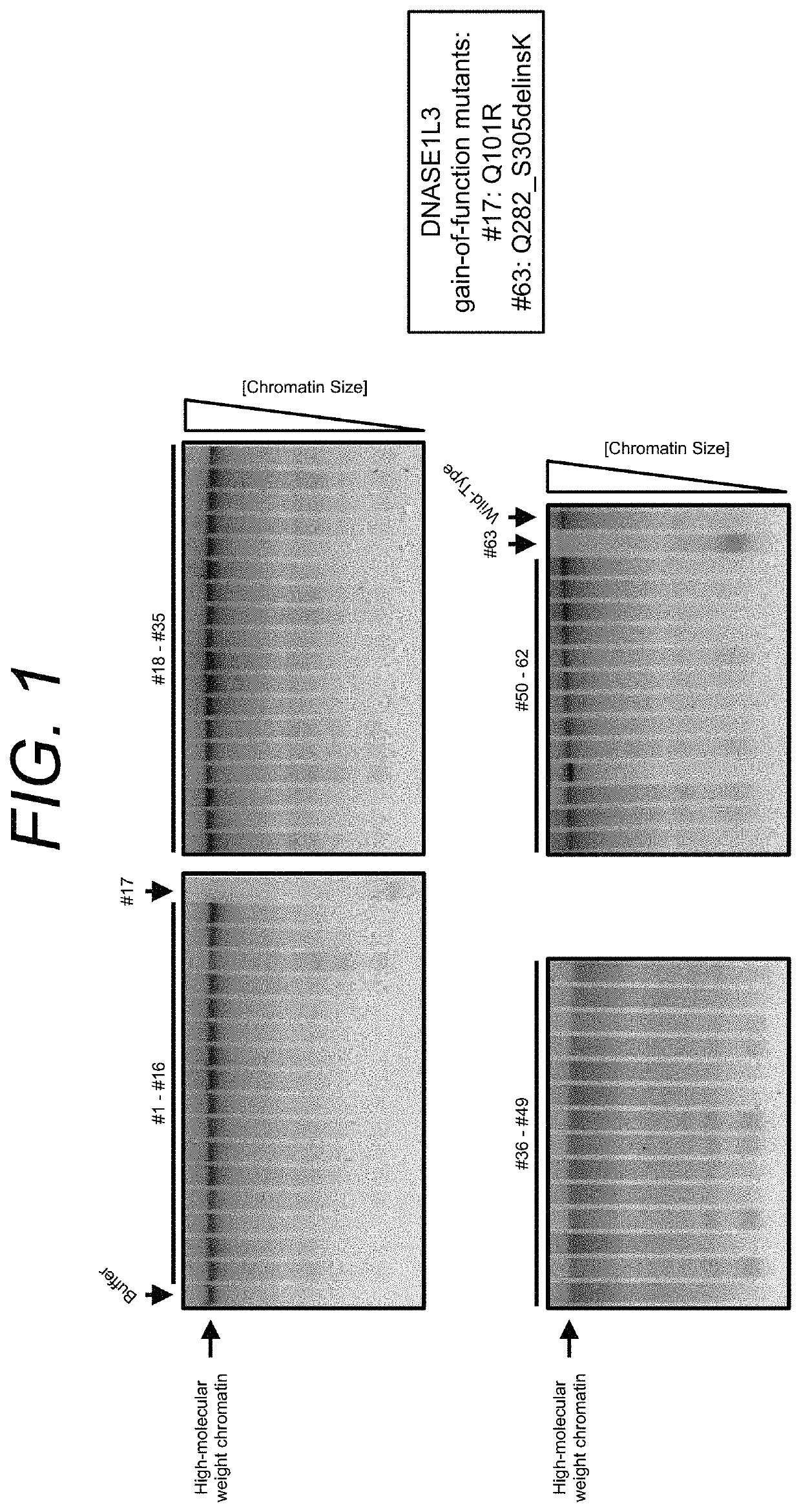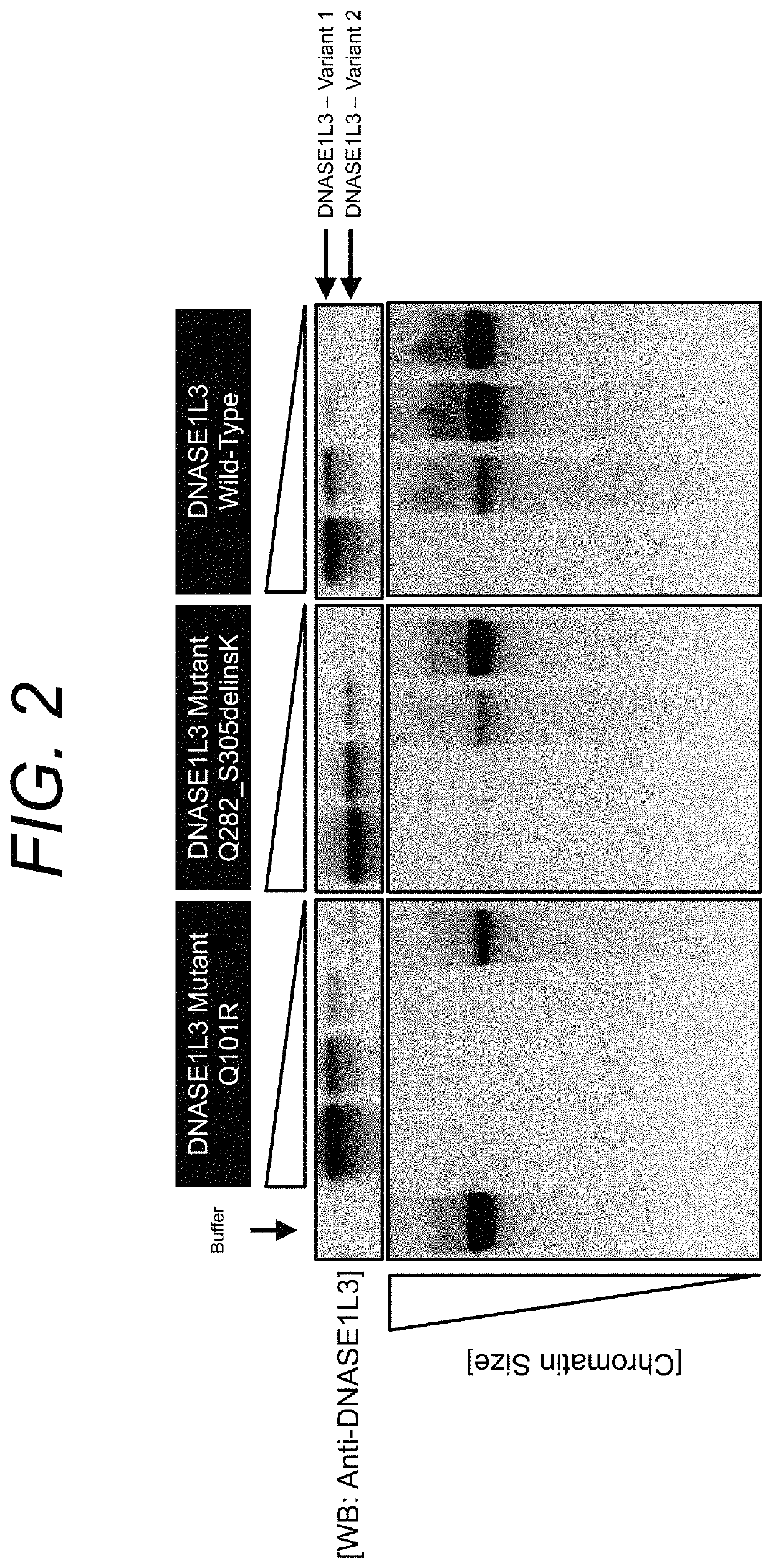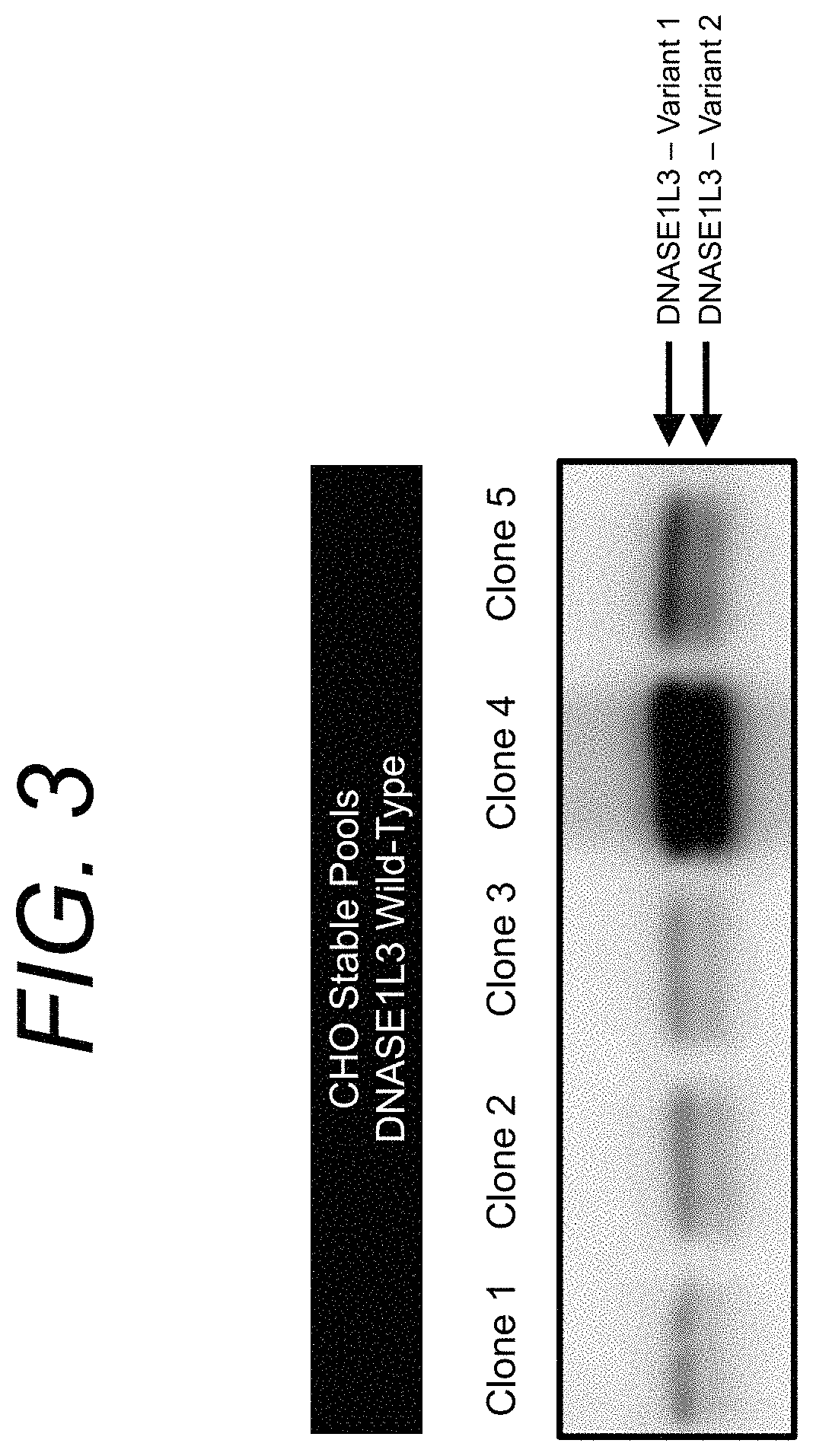Manufacturing and engineering of dnase enzymes for therapy
a technology of dnase enzyme and engineering technology, which is applied in the field of engineering dnase enzymes, can solve the problems of inconvenient release of nets, unsatisfactory clinical applications, and inability to meet the needs of large-scale manufacturing, and achieves the effects of slowing down drug elimination, improving circulation efficiency, and improving drug elimination efficiency
- Summary
- Abstract
- Description
- Claims
- Application Information
AI Technical Summary
Benefits of technology
Problems solved by technology
Method used
Image
Examples
example 2
n of D1L3 in CHO Cells in Bioreactors
[0250]Disclosed herein is the development of stable CHO cell lines producing wild-type D1L3 (SEQ ID NO: 4). The cell lines were cultured in bioreactors using standard CHO culture medium. Specifically, FIG. 5 shows a Western Blot of human D1L3 expressed and secreted by CHO cells in a bioreactor under cGMP-compatible conditions. Samples were collected at different time points (t1-t3). Only minor levels of D1L3 and D1L3 fragments were detected. The data suggest that low production yield of D1L3 is a challenge in manufacturing of D1L3.
[0251]As disclosed herein, high production levels of wild-type D1L3 were achieved by the addition of polyanions to the culture medium. Such polyanions can comprise one or more of heparin, dextran sulfate, ferric citrate, and ethylenediaminetetraacetic acid, and represent the biologically active ingredient in “anti-cell clumping reagents”. Specifically, we added dextran sulfate to the CHO culture medium and observed a st...
example 3
ng D1L3 for Protease Resistance
[0253]Wild-type D1L3 contains 50 arginine and lysine residues, which makes the enzyme particularly susceptible to proteases like trypsin, thrombin, and plasmin. In this example, trypsin and plasmin cleavage sites were identified in D1L3. The sites can be mutated to generated protease-resistance variants of D1L3.
[0254]In brief, purified D1L3 was digested with trypsin. D1L3 fragments were isolated, and the amino acid sequence of the fragments determined using combinations of liquid chromatography (LC) and mass spectrometry (MS). It was identified that trypsin cleaved D1L3 at the following arginine and lysine residues: R22, R29, R51, R66, R80, R81, R95, K99, R115, K147, K163, K180, R208, R212, R235, R239, K250, and K262. These arginine and lysine residues can be substituted with small amino acids such as alanine, valine, and serine or with amino acids that have similar properties according to the Grantham's distance score (e.g. histidine, glutamine, and g...
example 4
ng D1L3 to Avoid Degradation
[0260]We observed fragmentation of D1L3 after heterologous expression in Pichia pastoris. Analysis of the fragments characterized paired basic amino acids, arginine (R) and lysine (K) residues, as proteolytic cleavage sites. A similar degradation pattern was observed after expressing D1L3 in CHO cells. These observations suggest that Pichia pastoris and CHO cells share homologous proteases that cleave D1L3 at paired basic amino acids, and although the effect was more significant in CHO cells.
[0261]It was determined that the paired basic amino acid cleaving enzyme (PACE) contributed to the DNASE1L3 fragmentation. PACE, also known as Furin (Uniprot ID: P09958), is expressed in humans and mammals. Pichia pastoris expresses two enzymes, which target paired basic amino acids, namely Aspartic proteinase 3 (Gene: Ysp1; Uniprot ID: P32329) and Kexin (Gene: Kex2; Uniprot ID: P13134). Thus, DNASE1L3 and DNASE1L3 variants can be expressed in Pichia pastoris and in C...
PUM
| Property | Measurement | Unit |
|---|---|---|
| Fraction | aaaaa | aaaaa |
| Cell angle | aaaaa | aaaaa |
Abstract
Description
Claims
Application Information
 Login to View More
Login to View More - R&D
- Intellectual Property
- Life Sciences
- Materials
- Tech Scout
- Unparalleled Data Quality
- Higher Quality Content
- 60% Fewer Hallucinations
Browse by: Latest US Patents, China's latest patents, Technical Efficacy Thesaurus, Application Domain, Technology Topic, Popular Technical Reports.
© 2025 PatSnap. All rights reserved.Legal|Privacy policy|Modern Slavery Act Transparency Statement|Sitemap|About US| Contact US: help@patsnap.com



